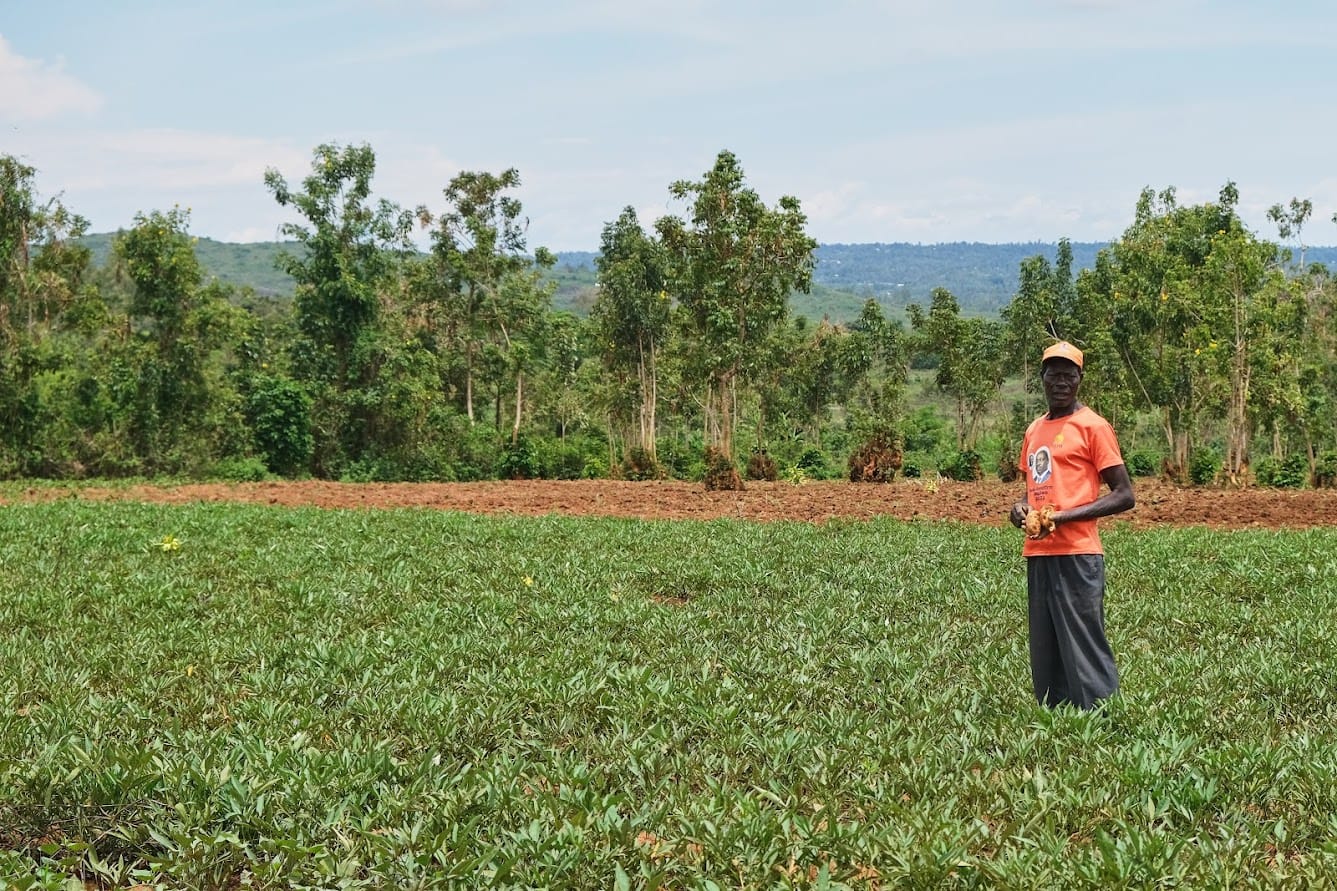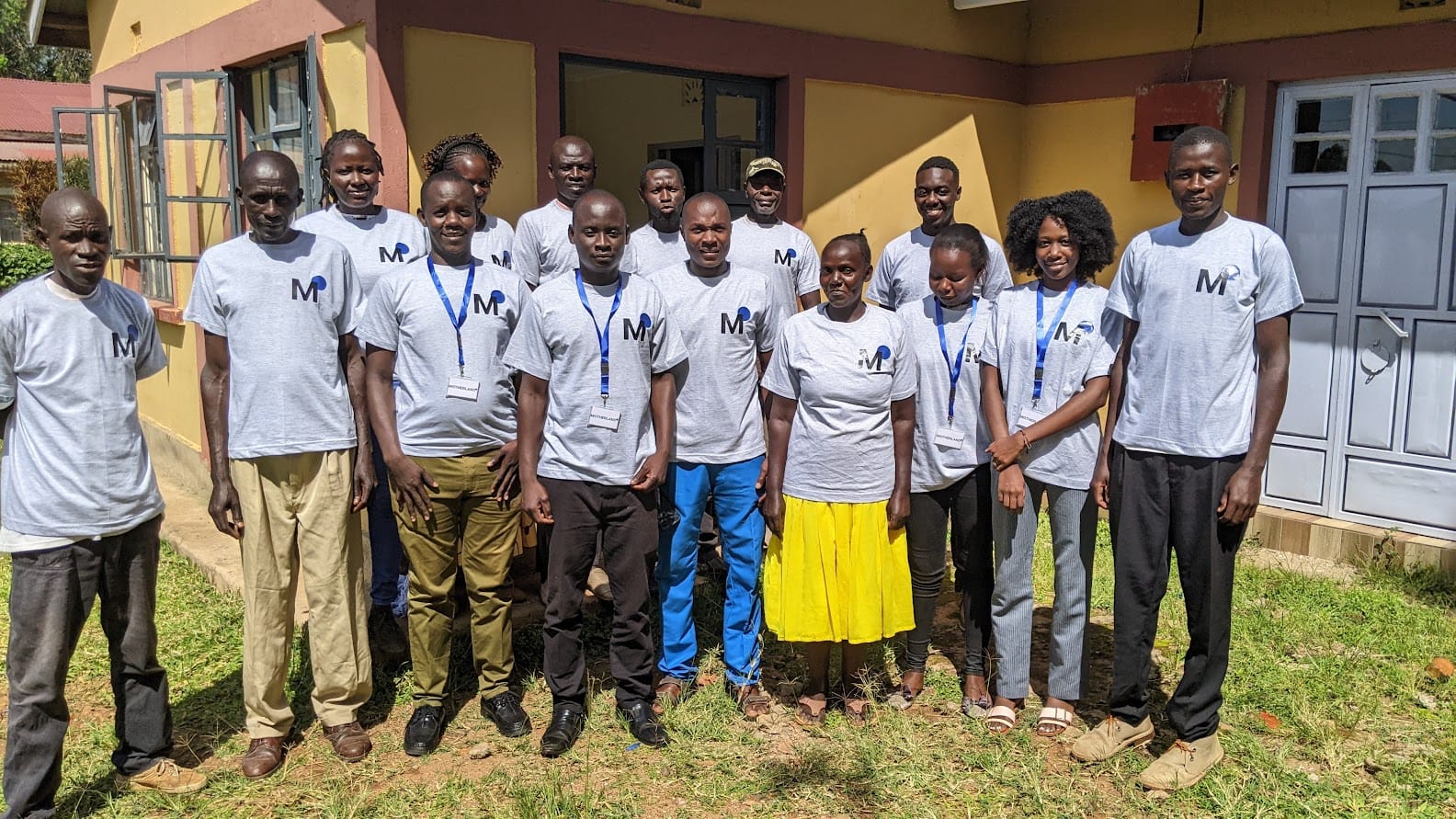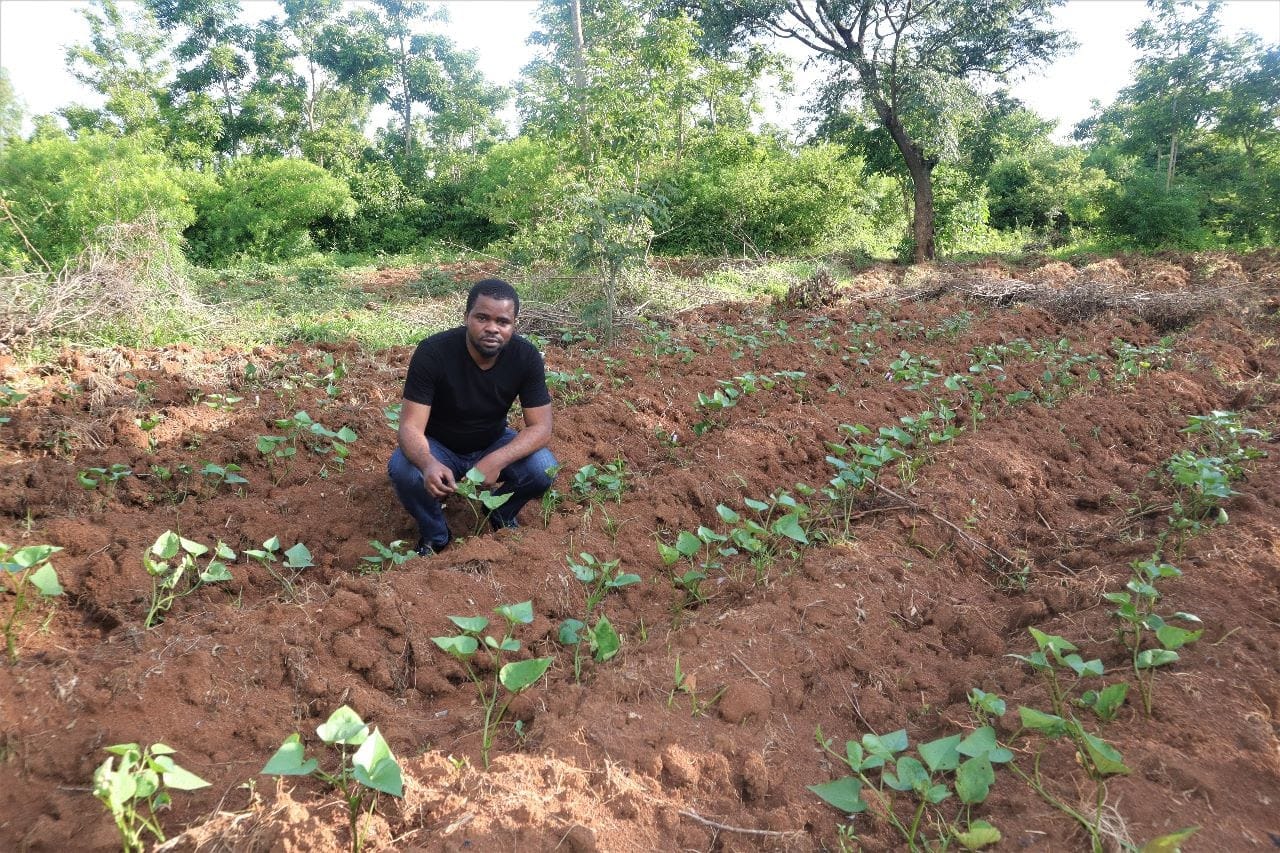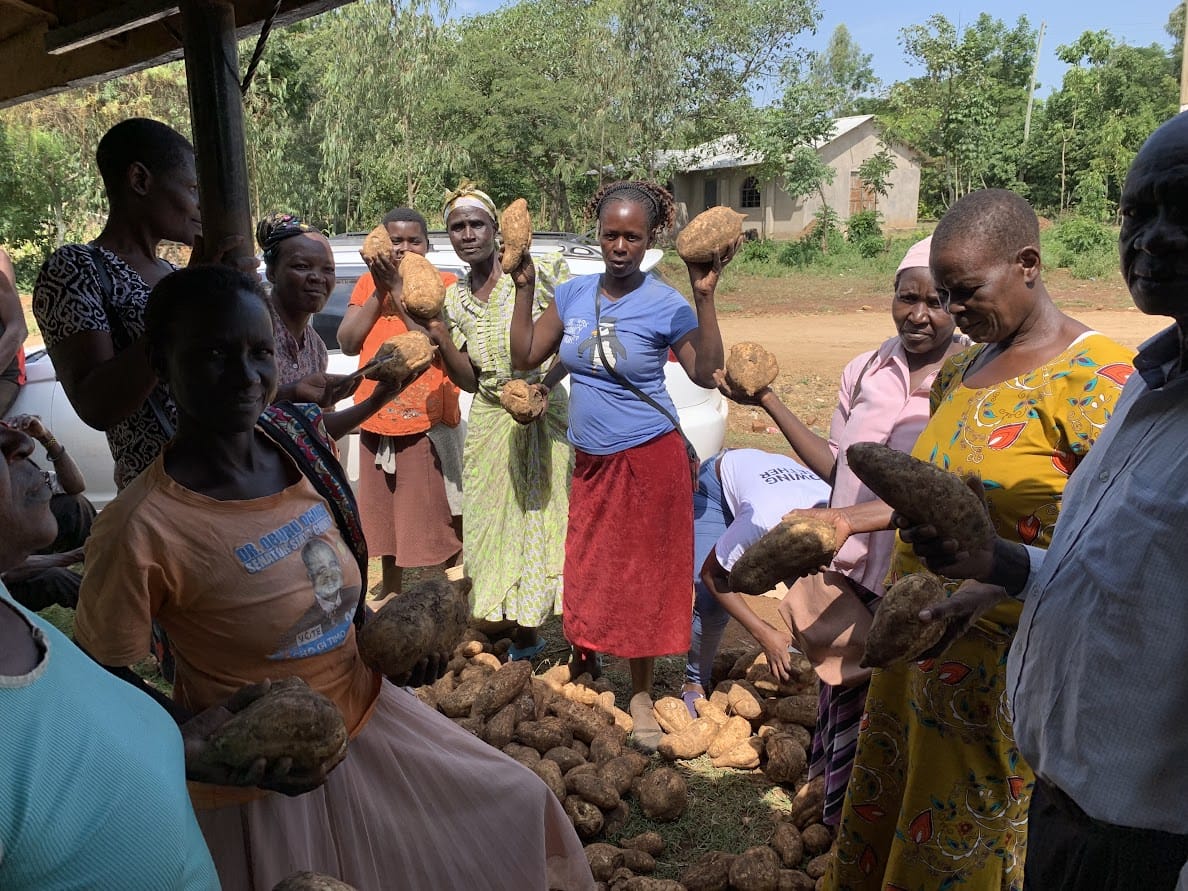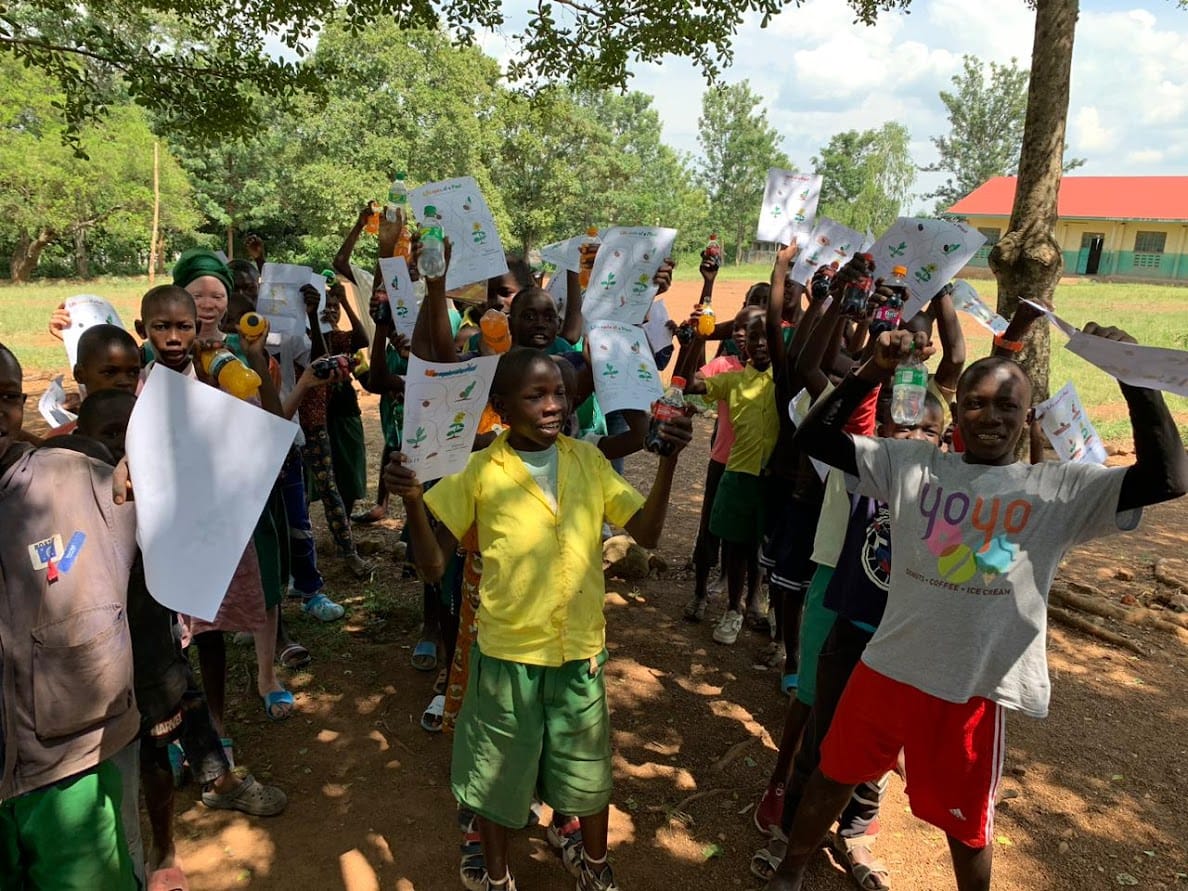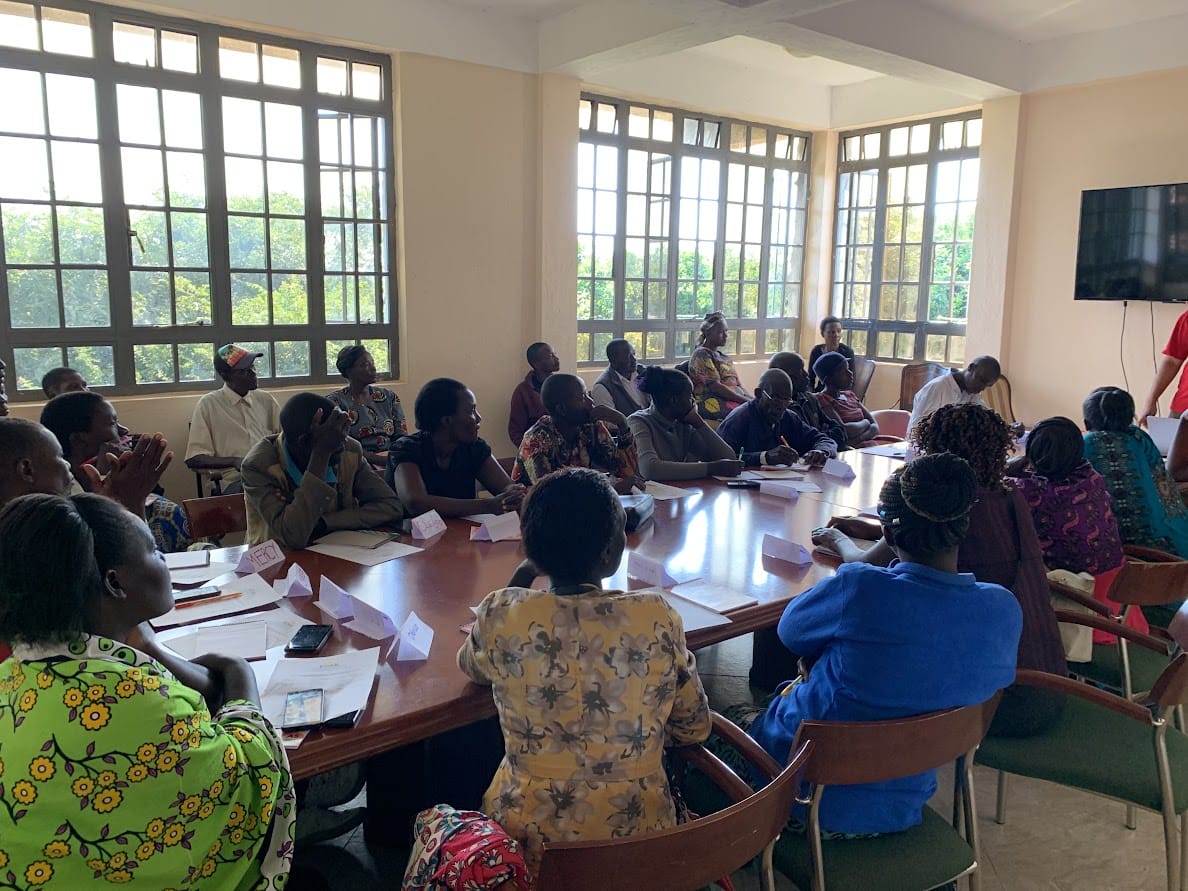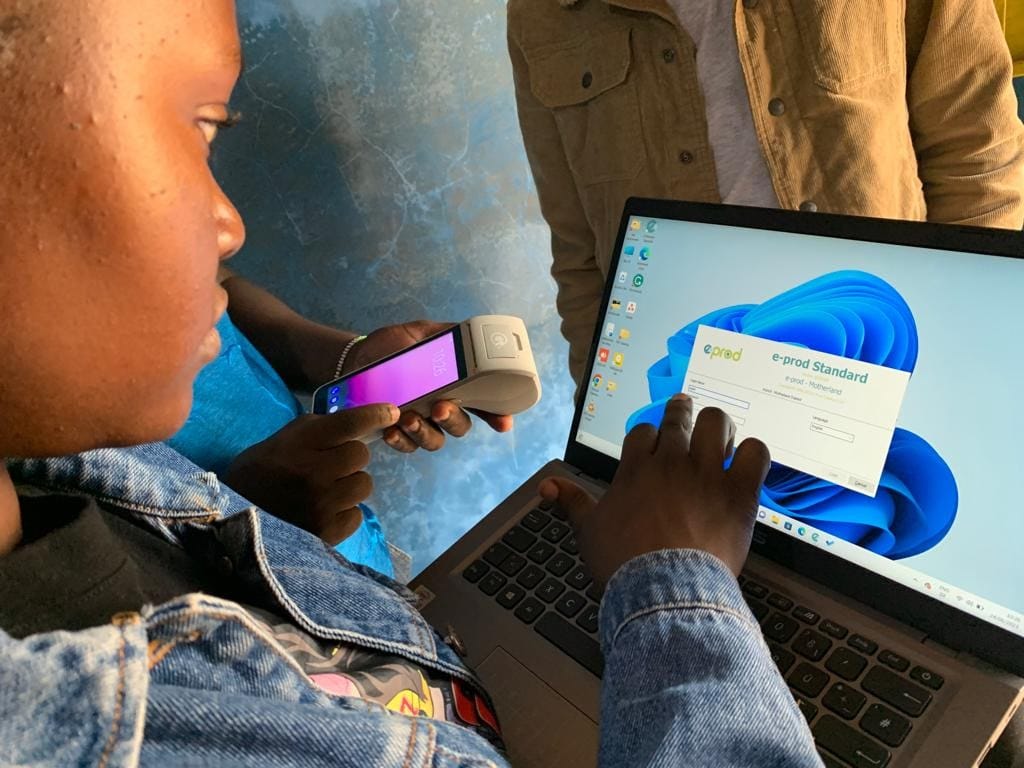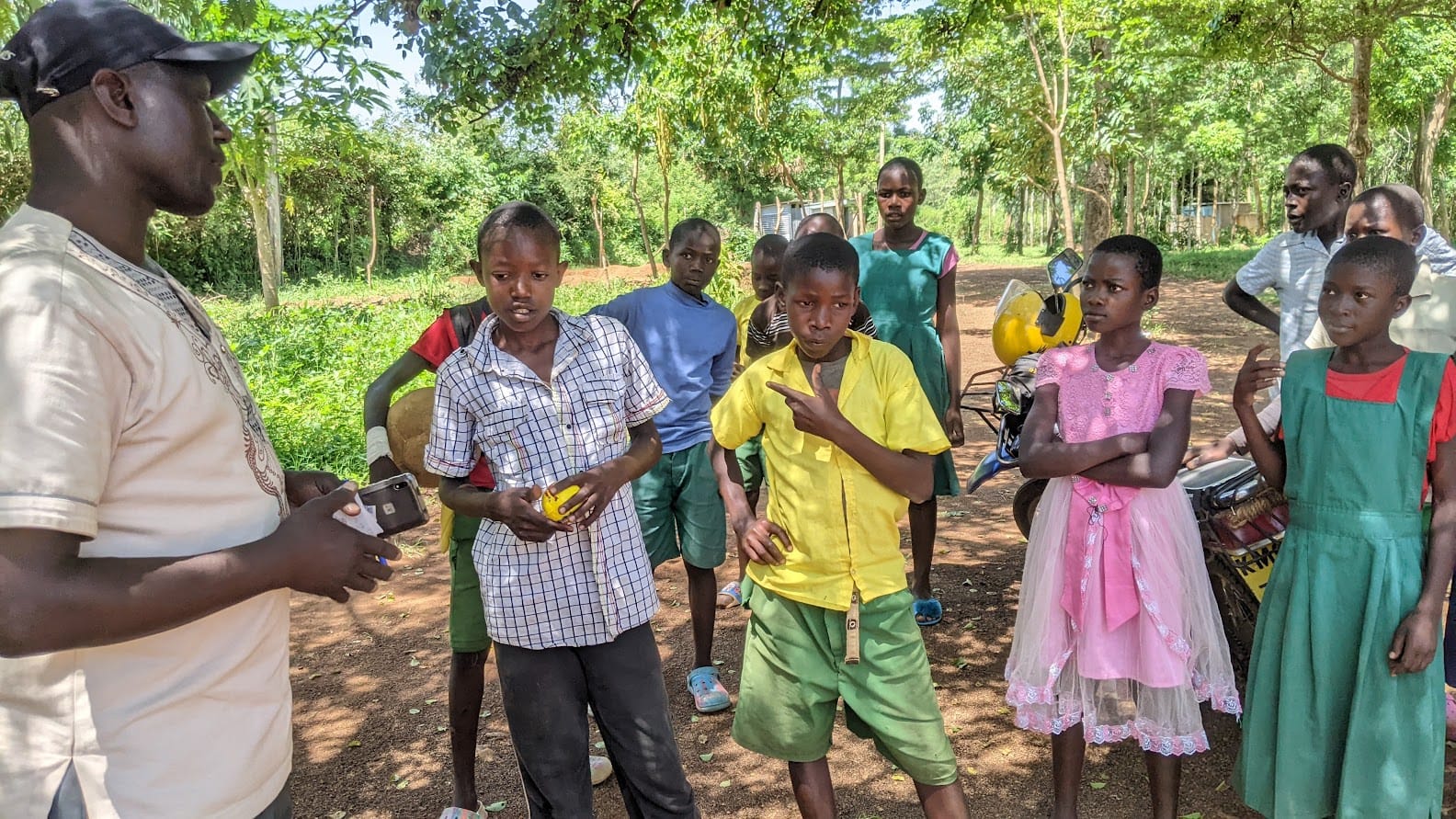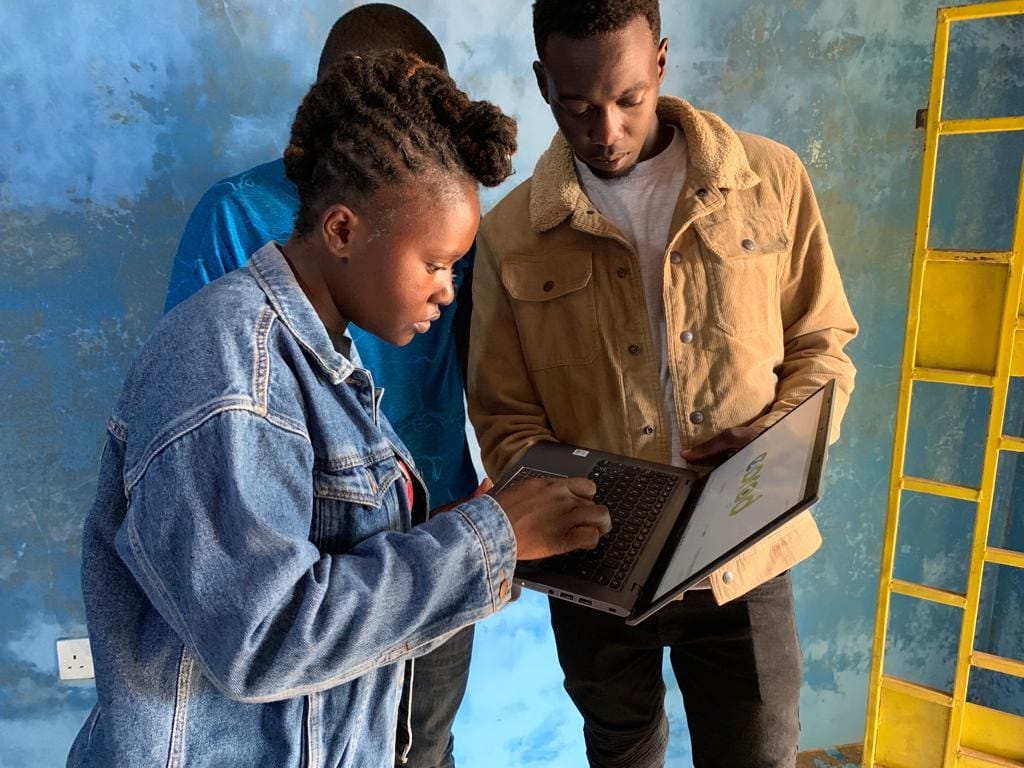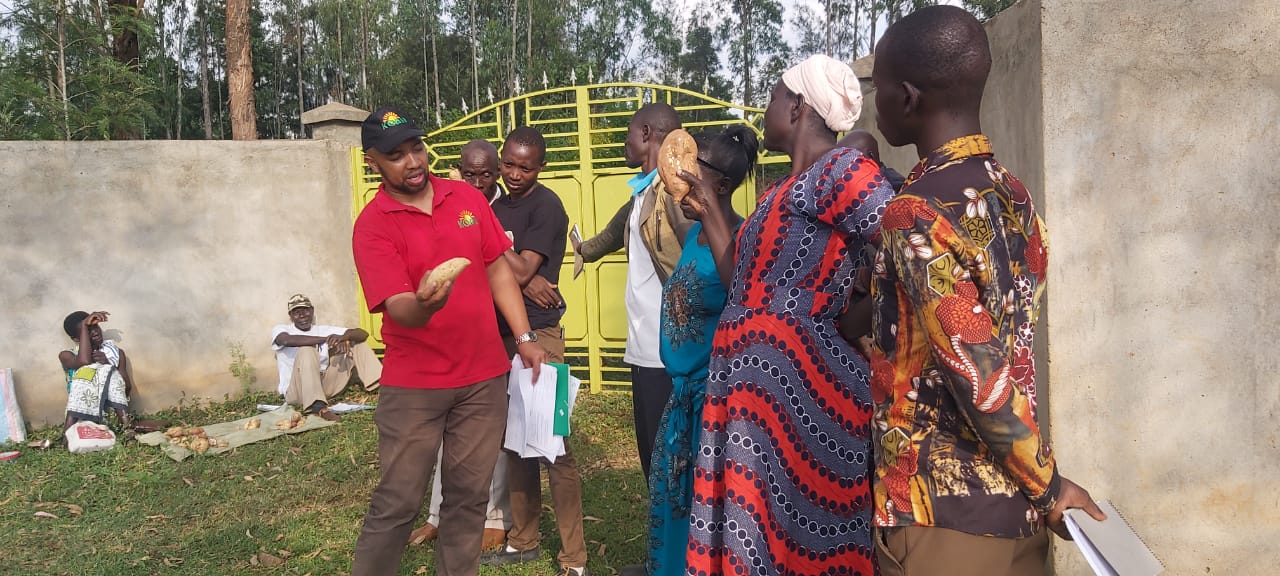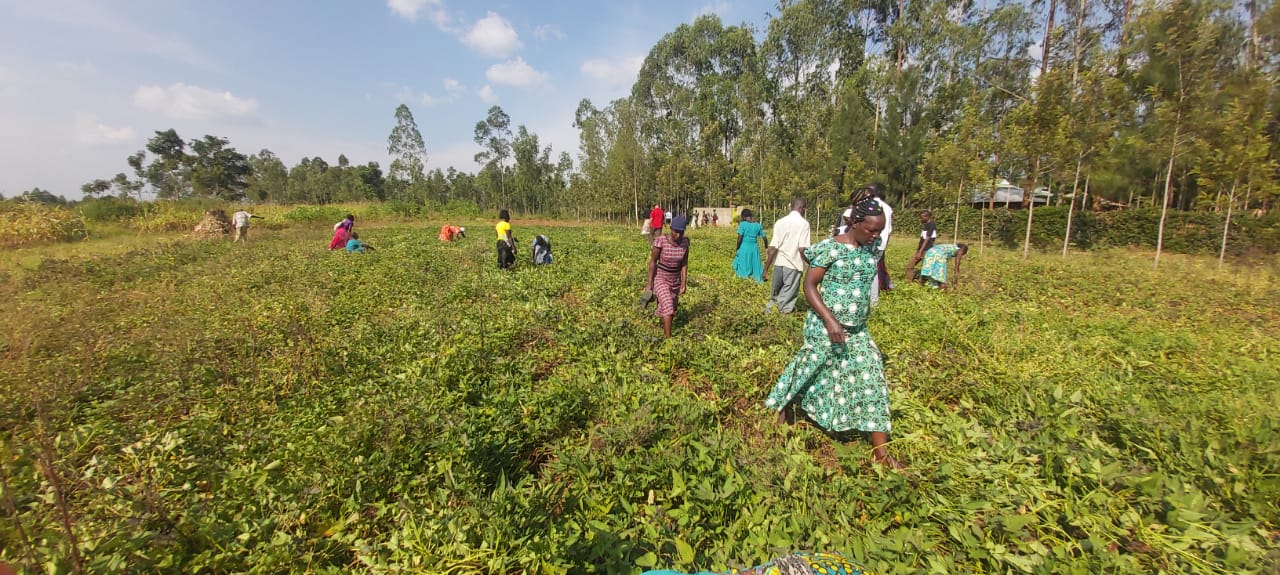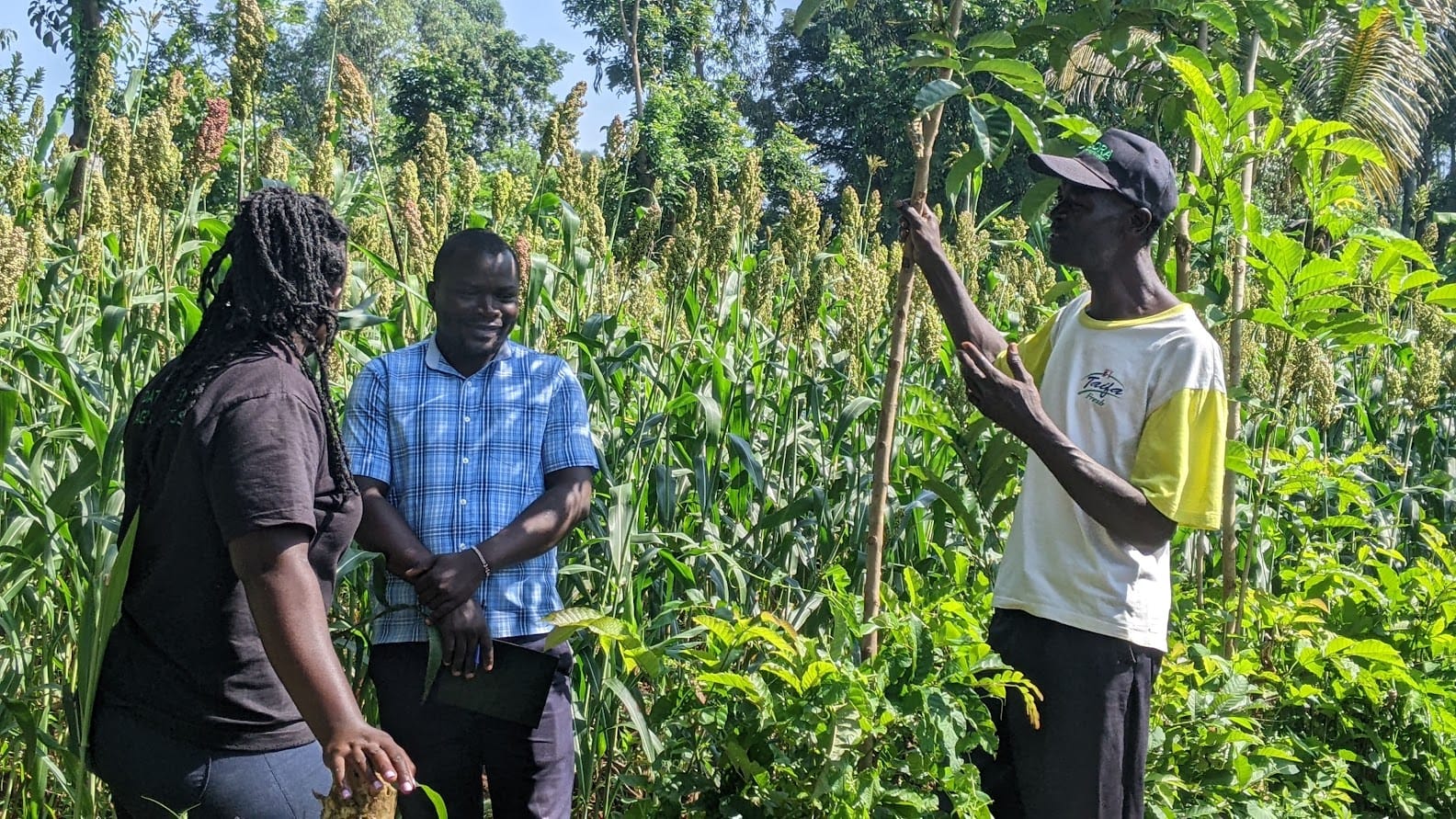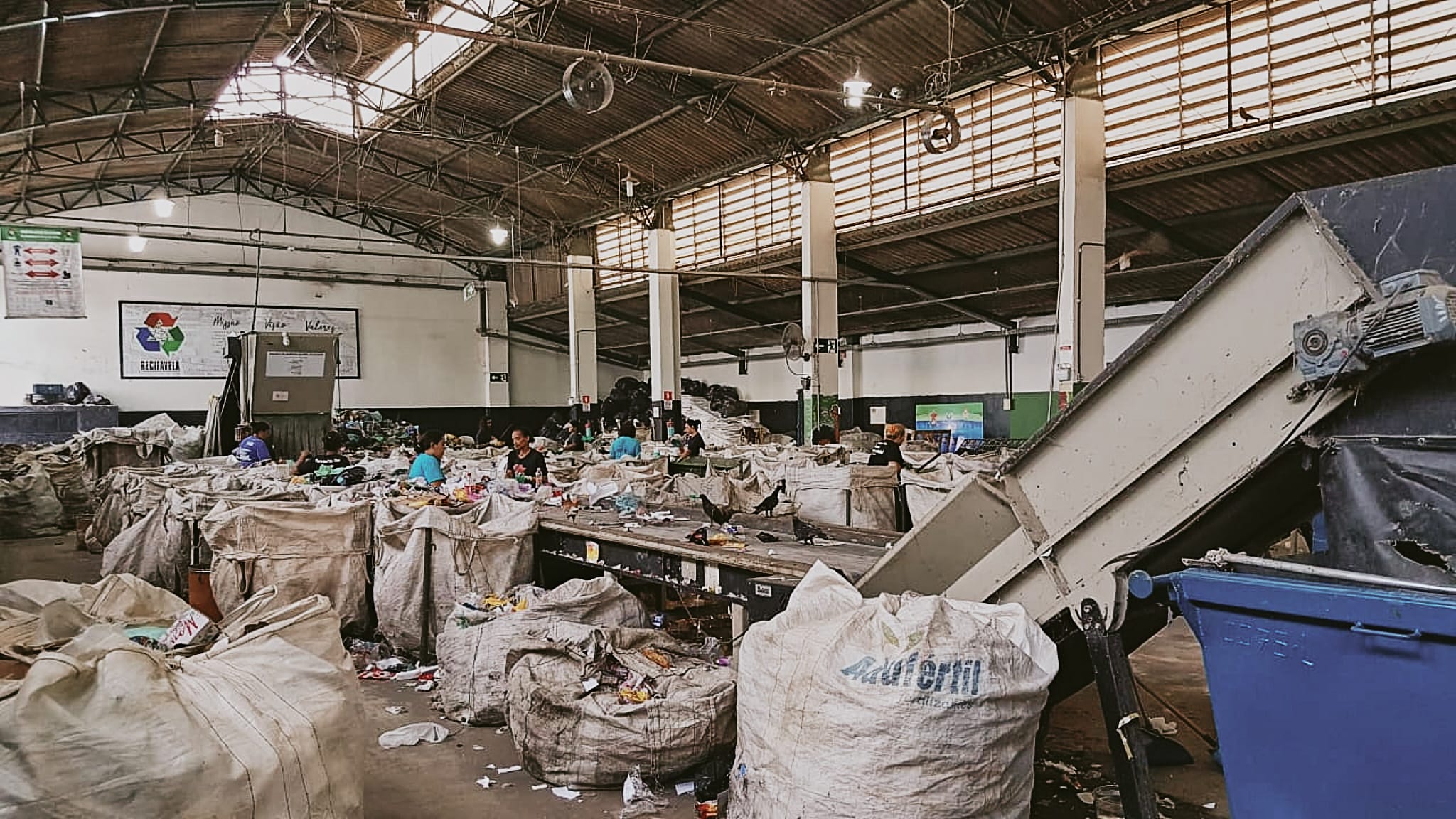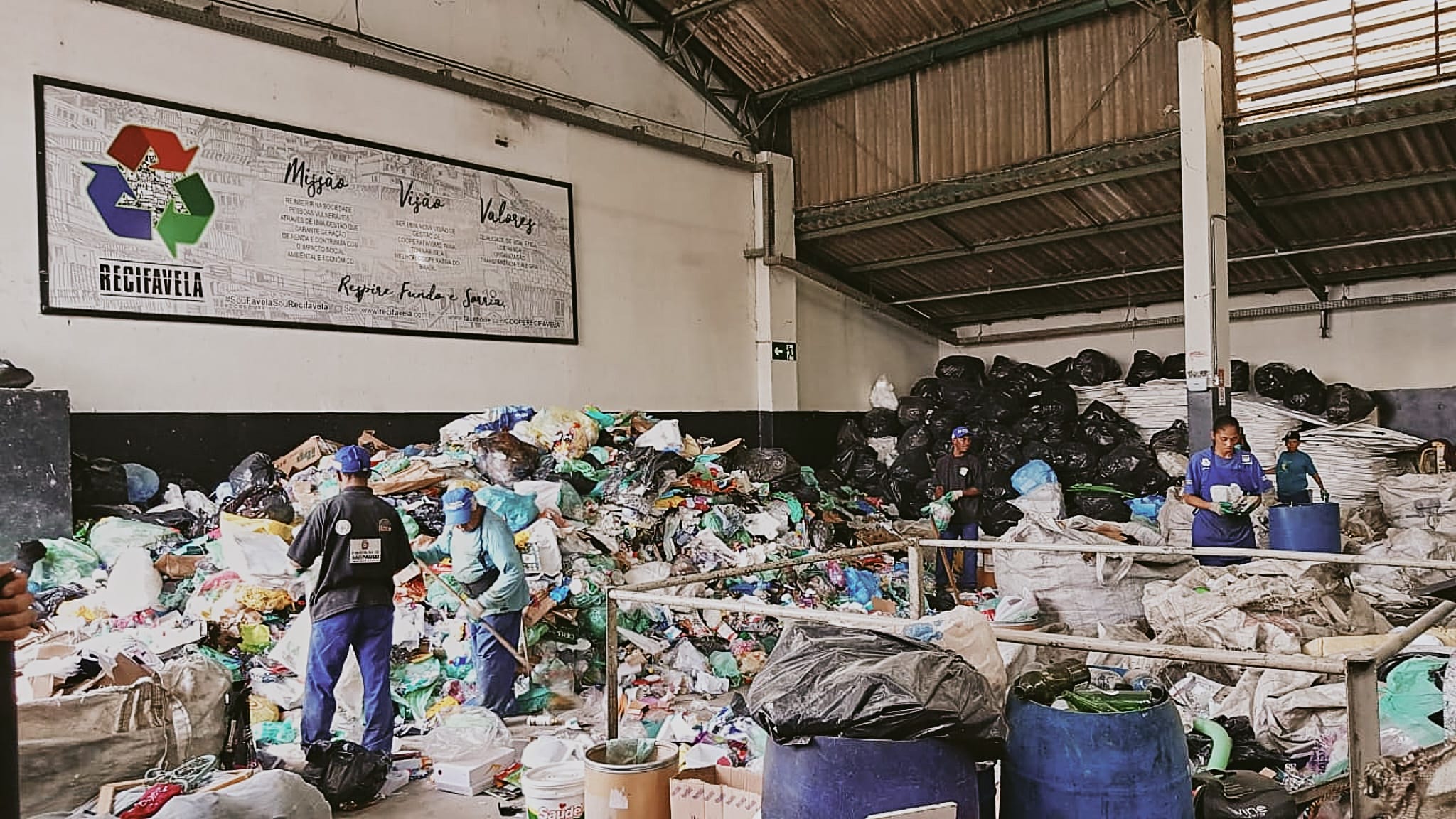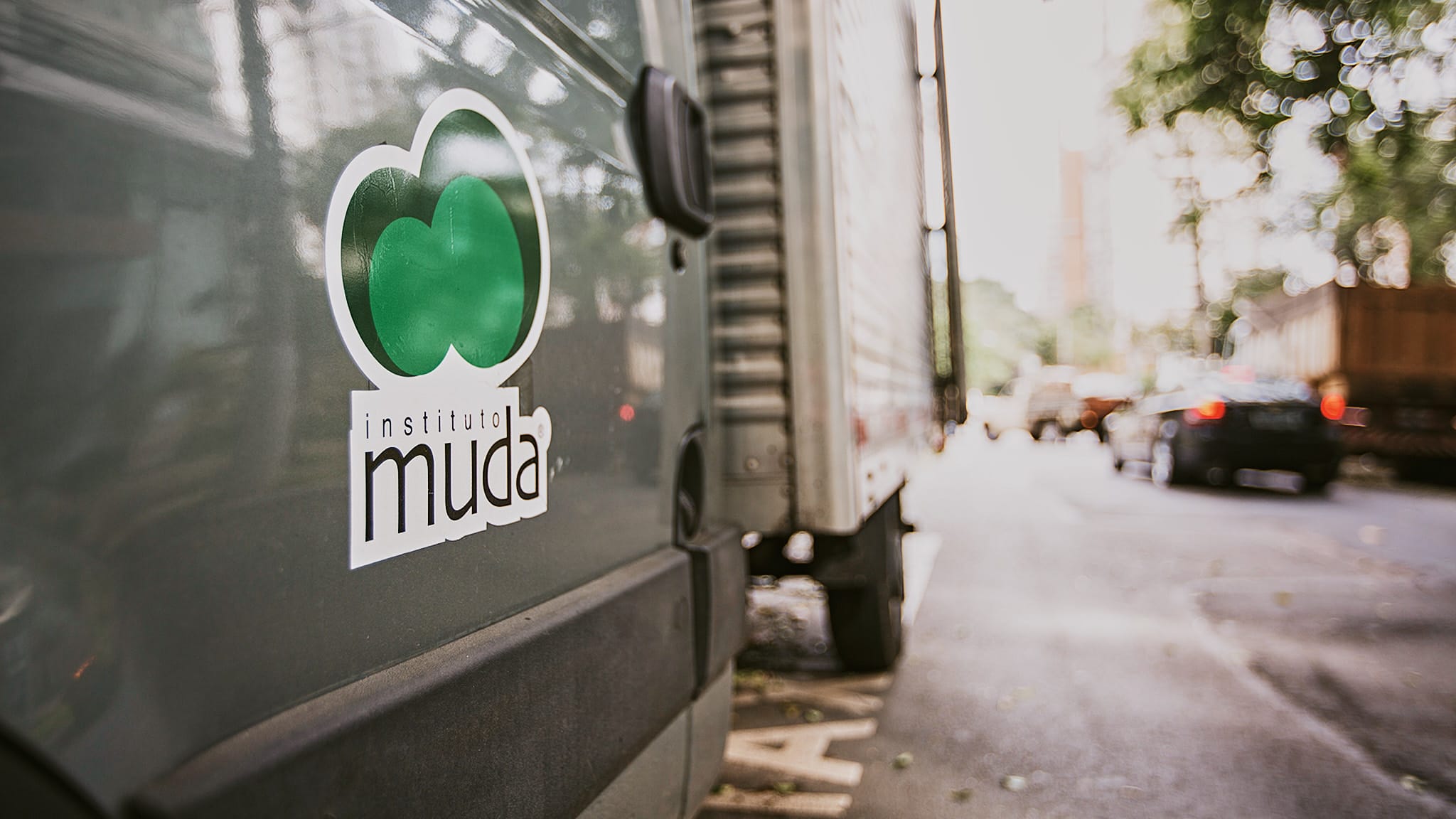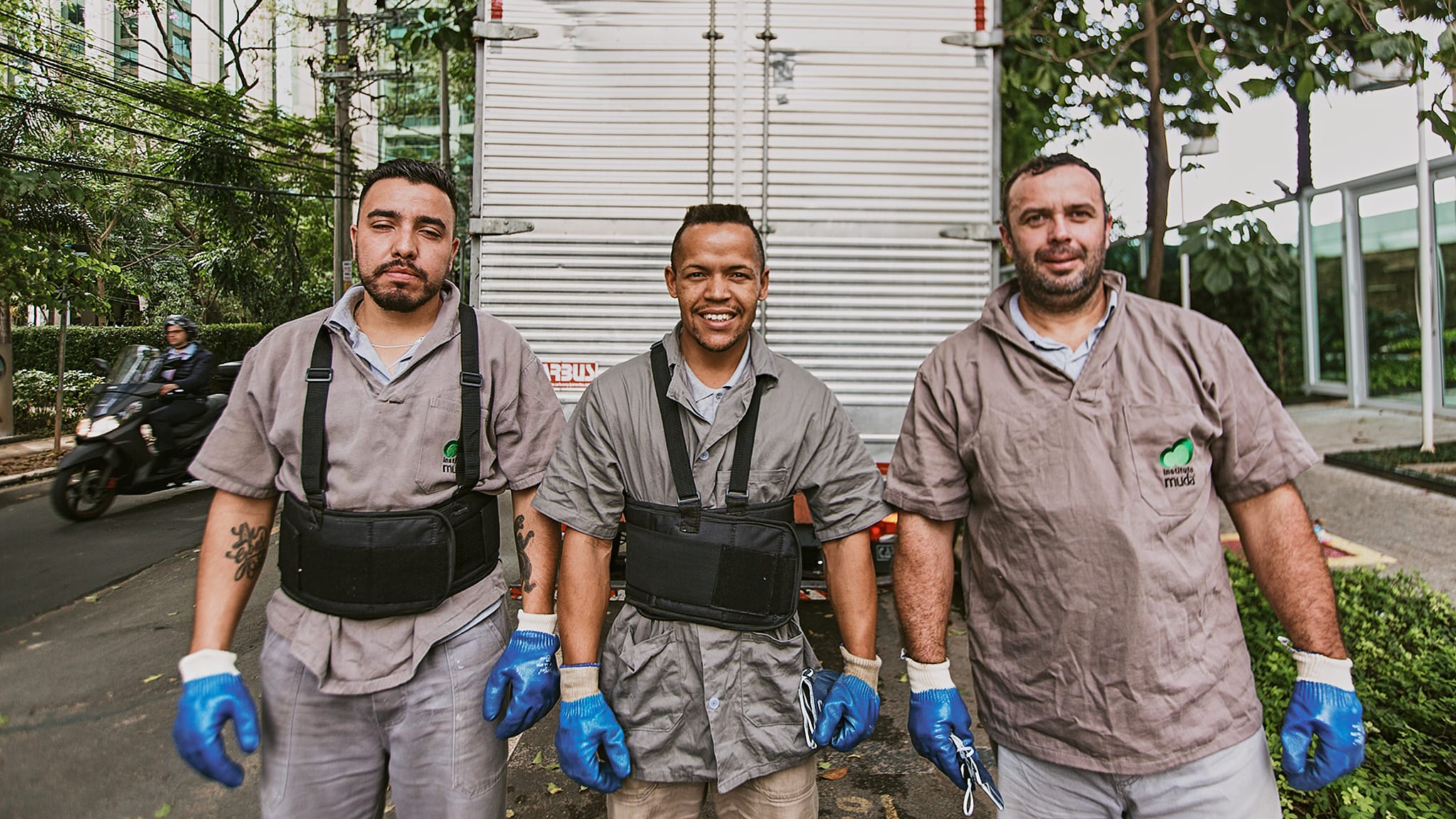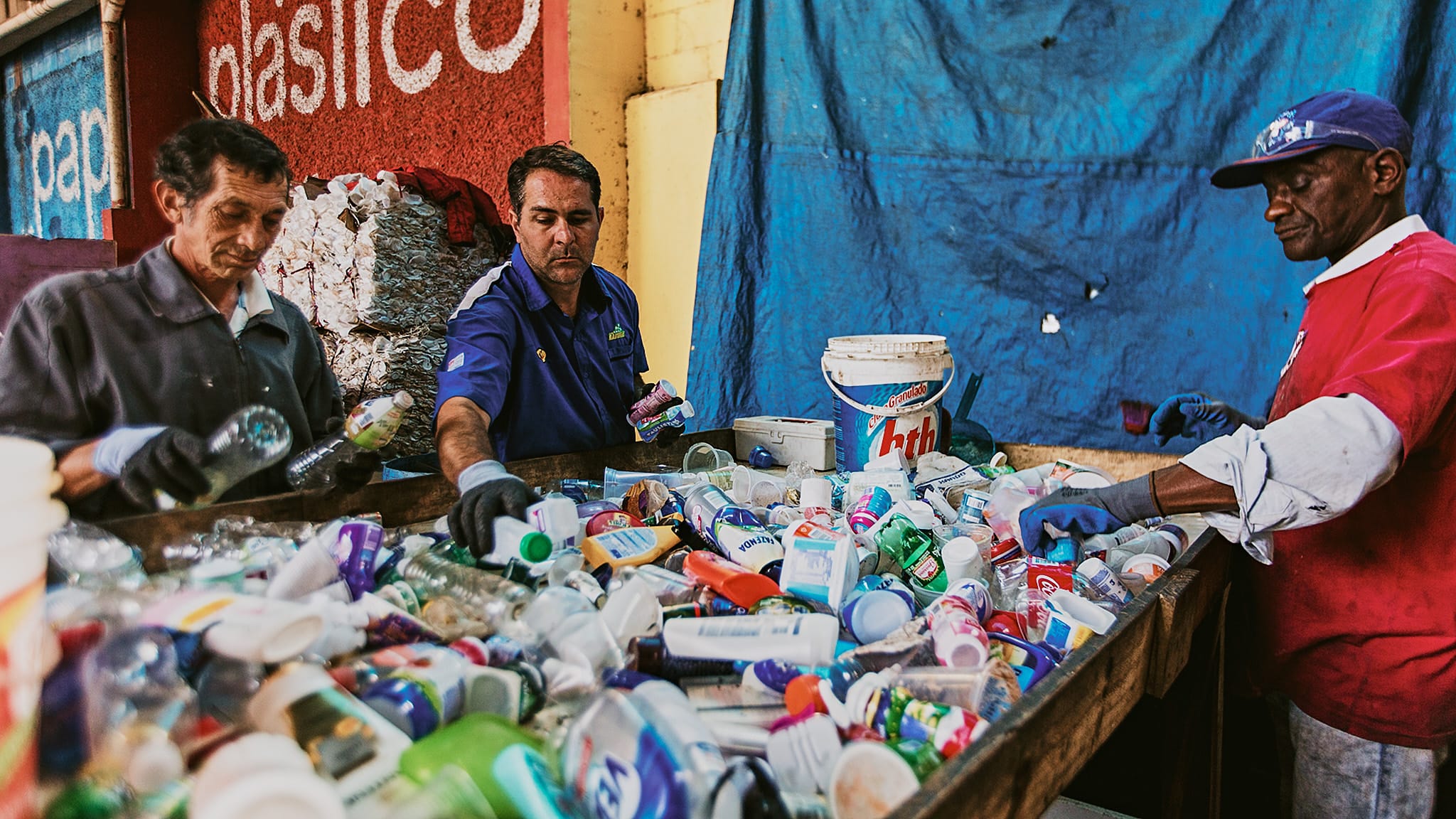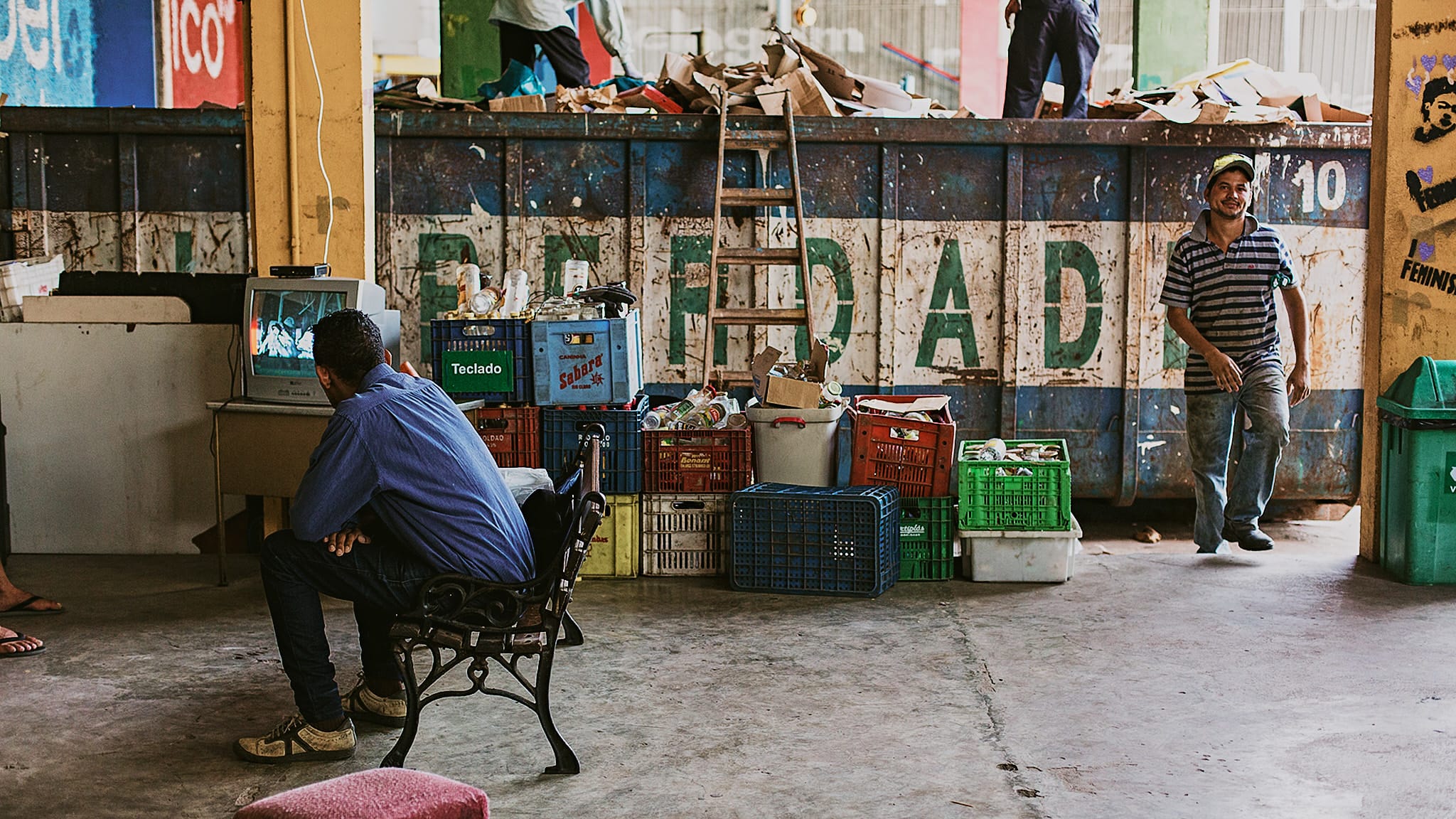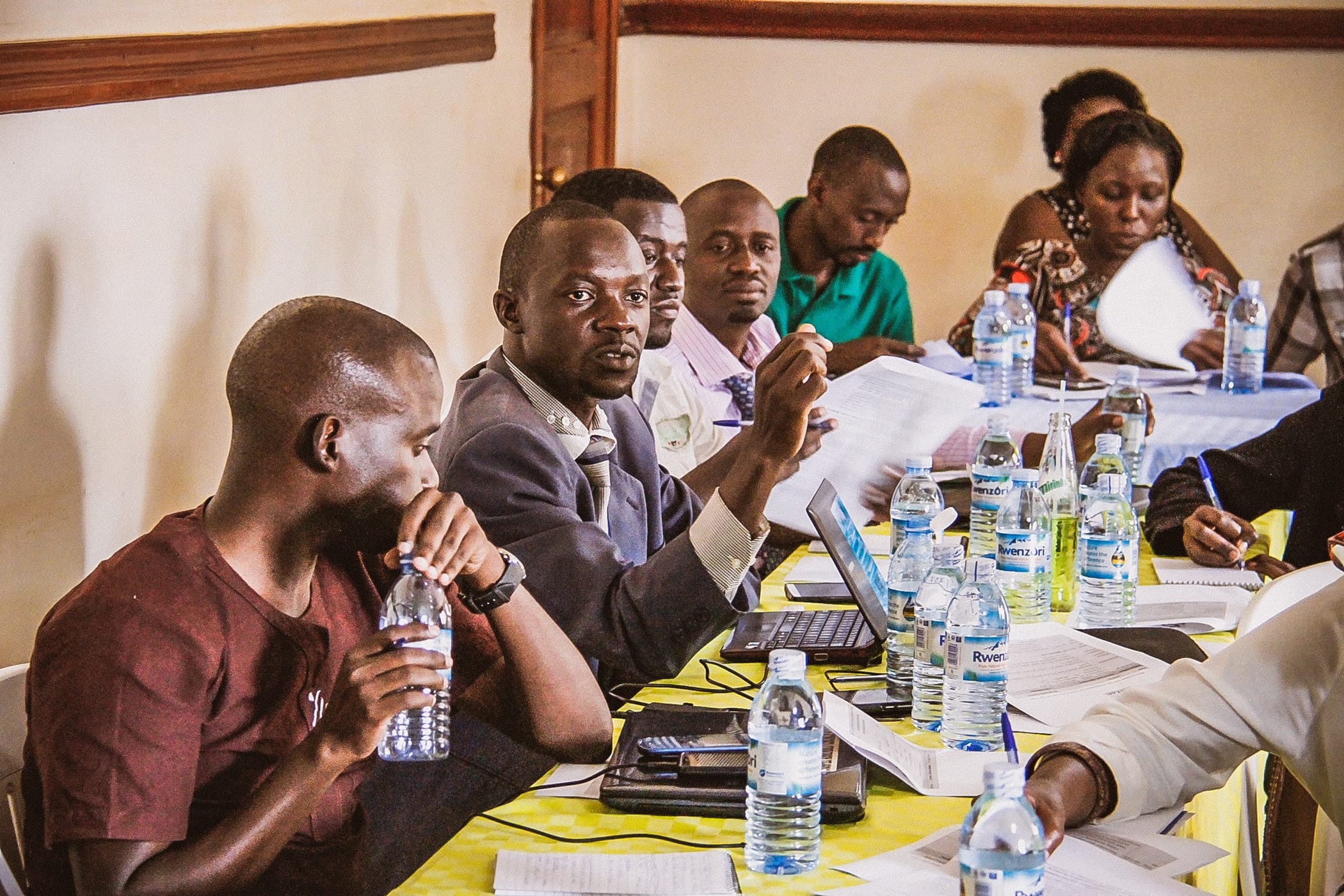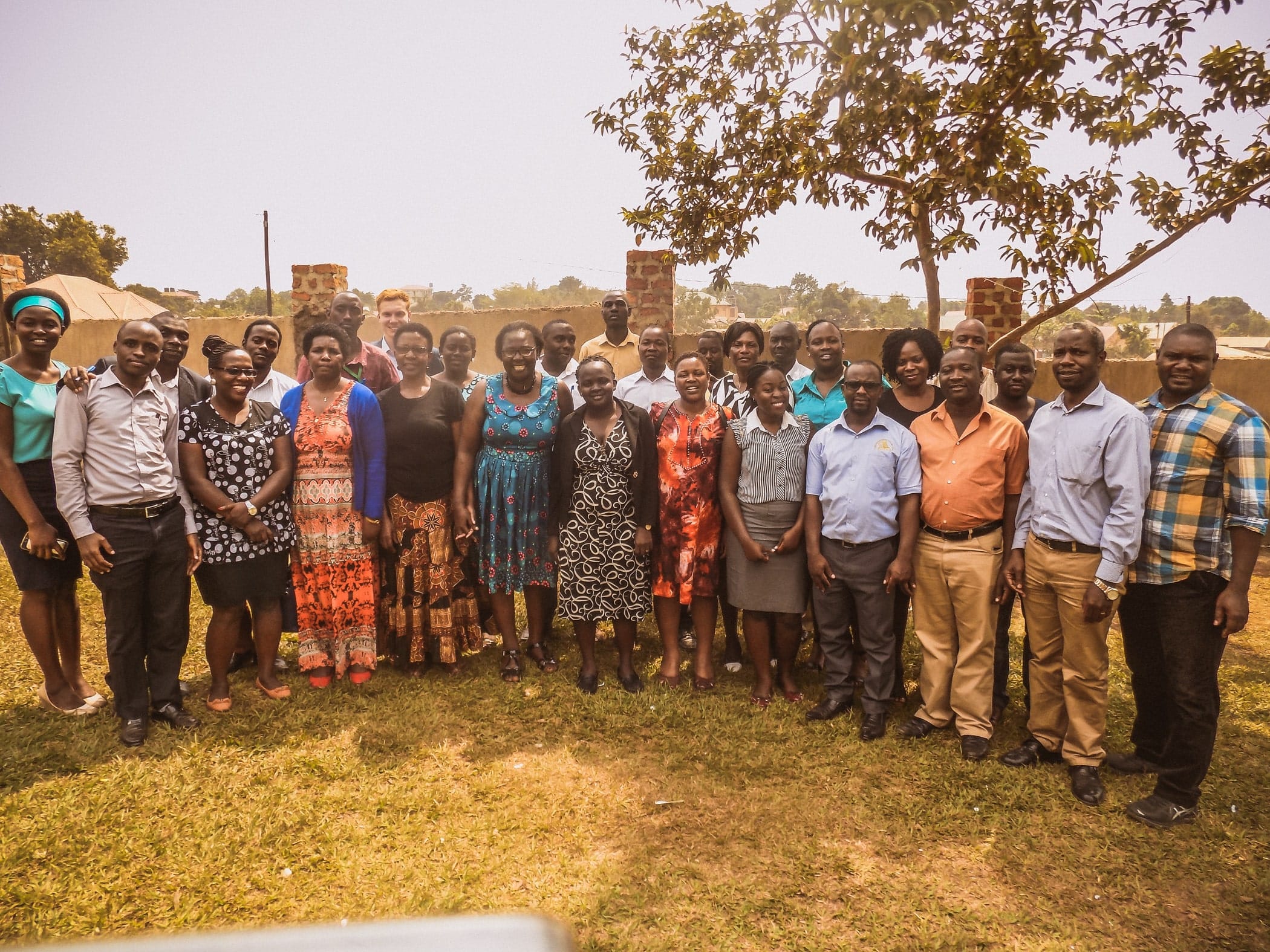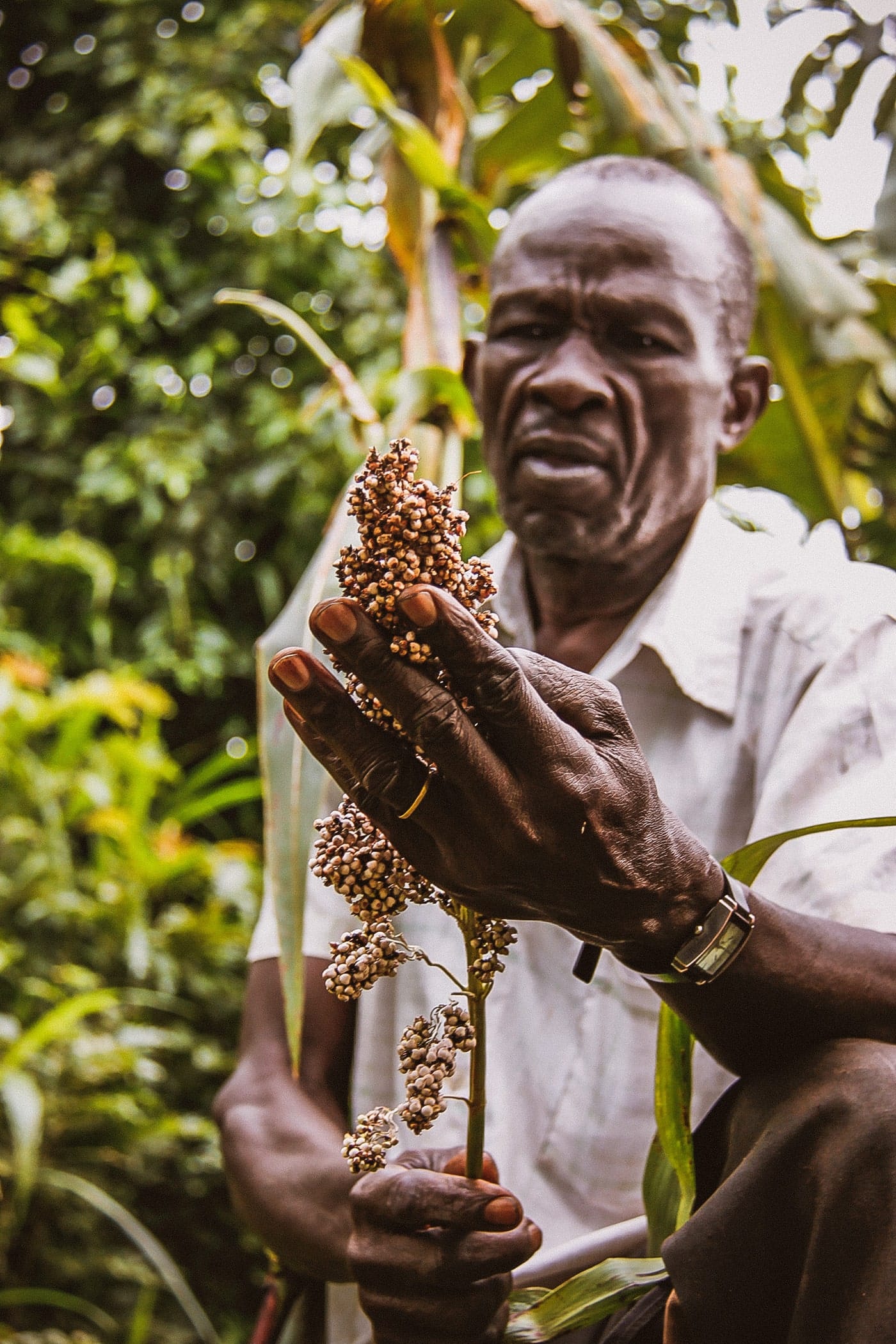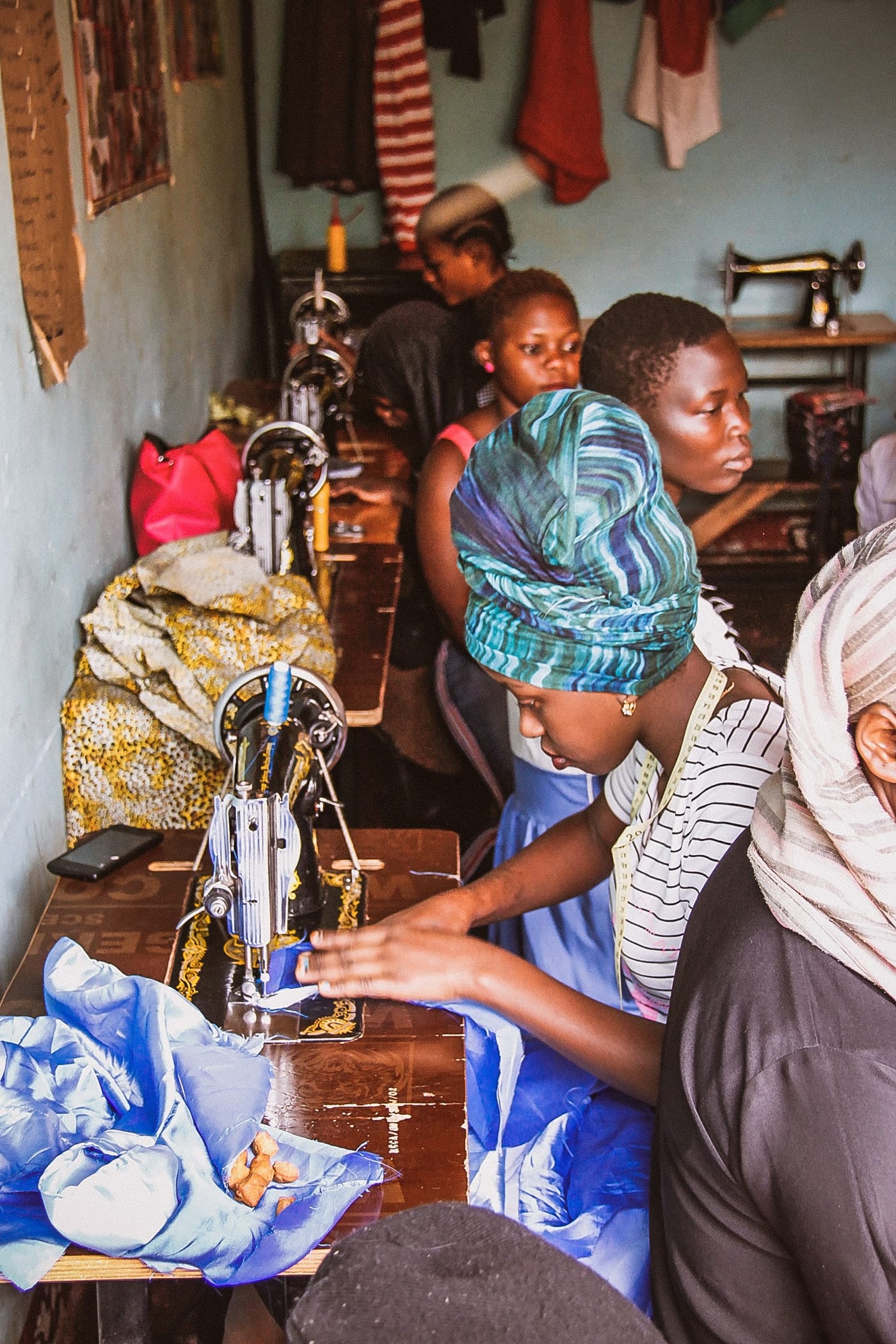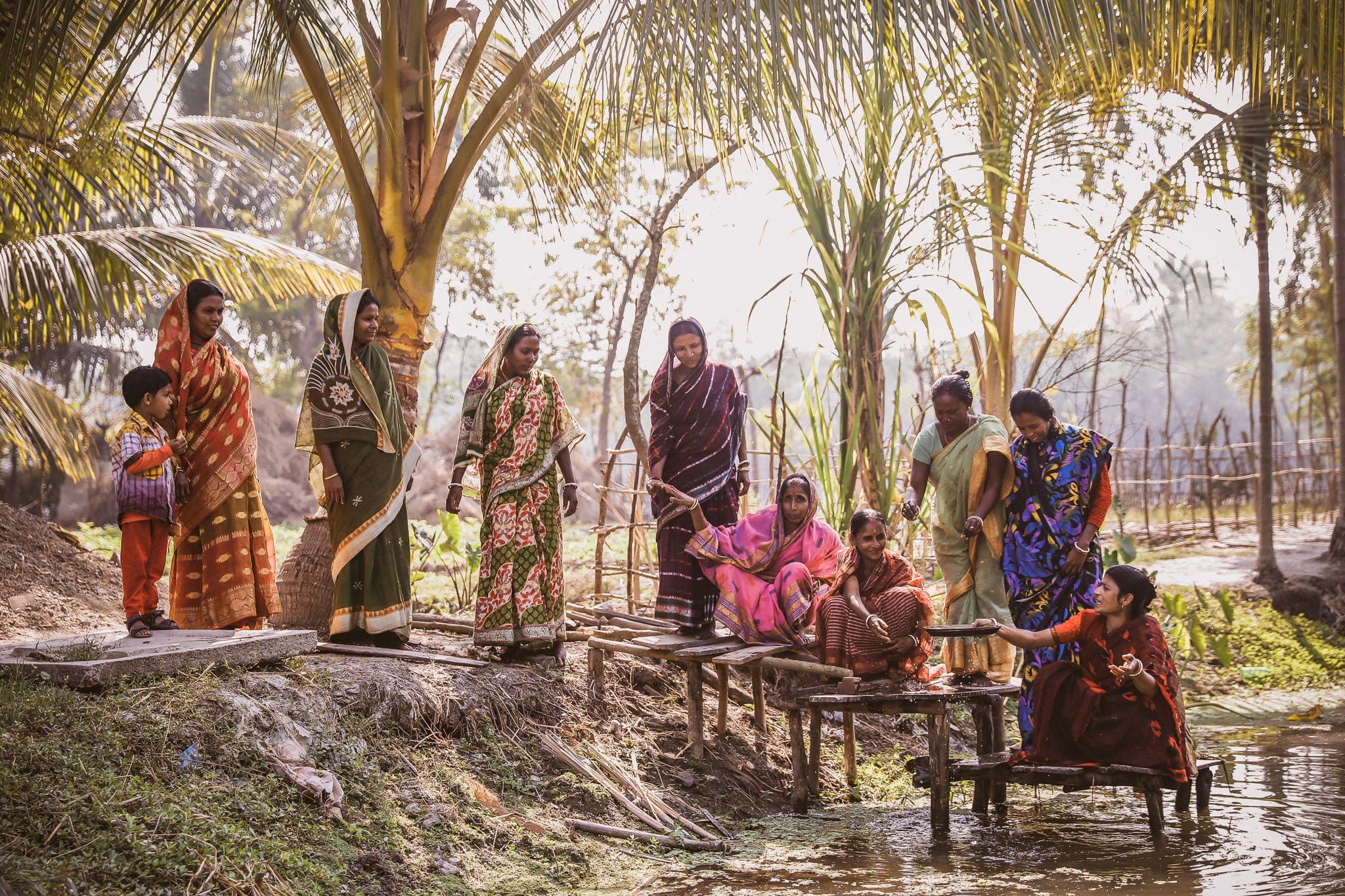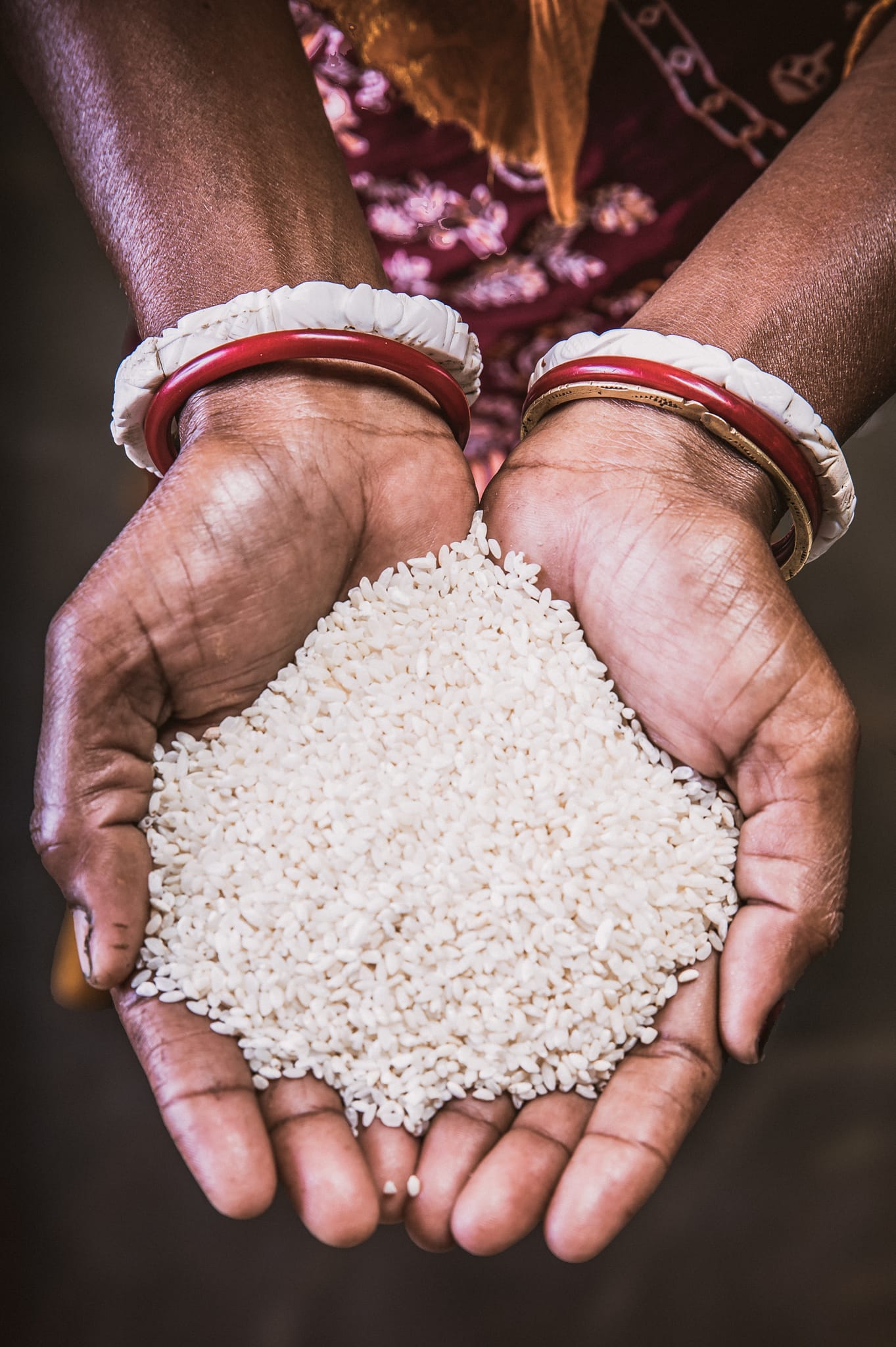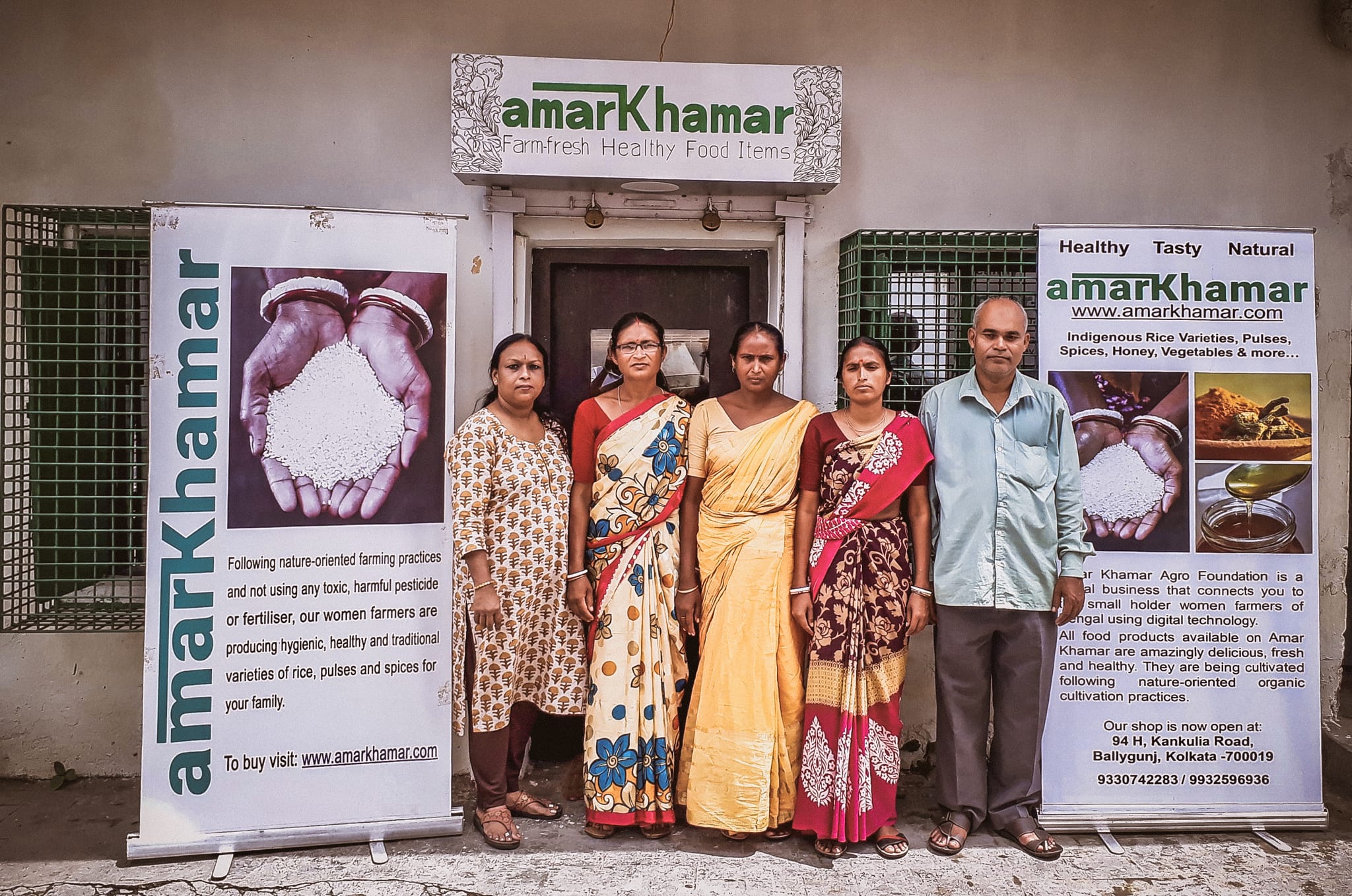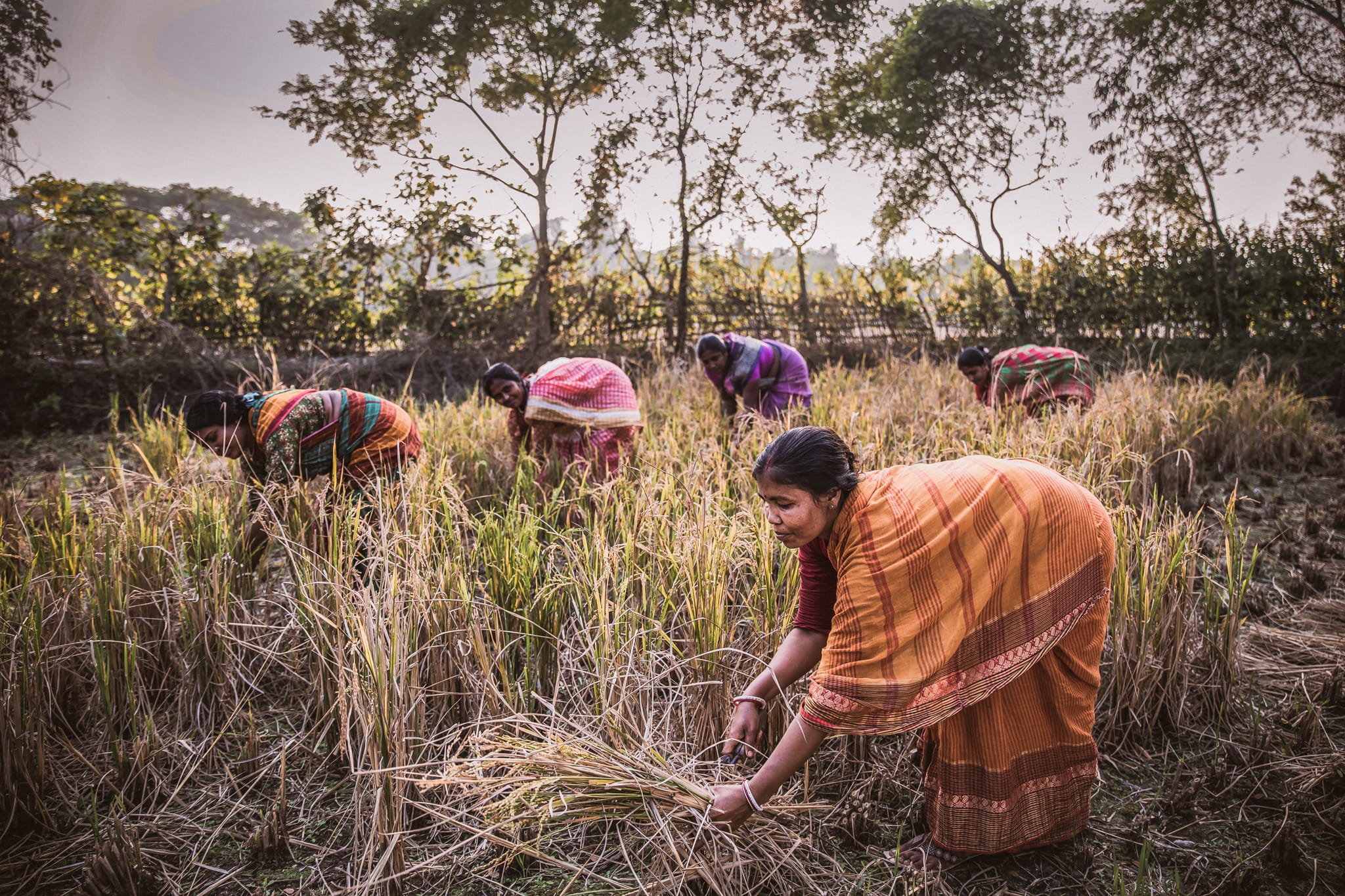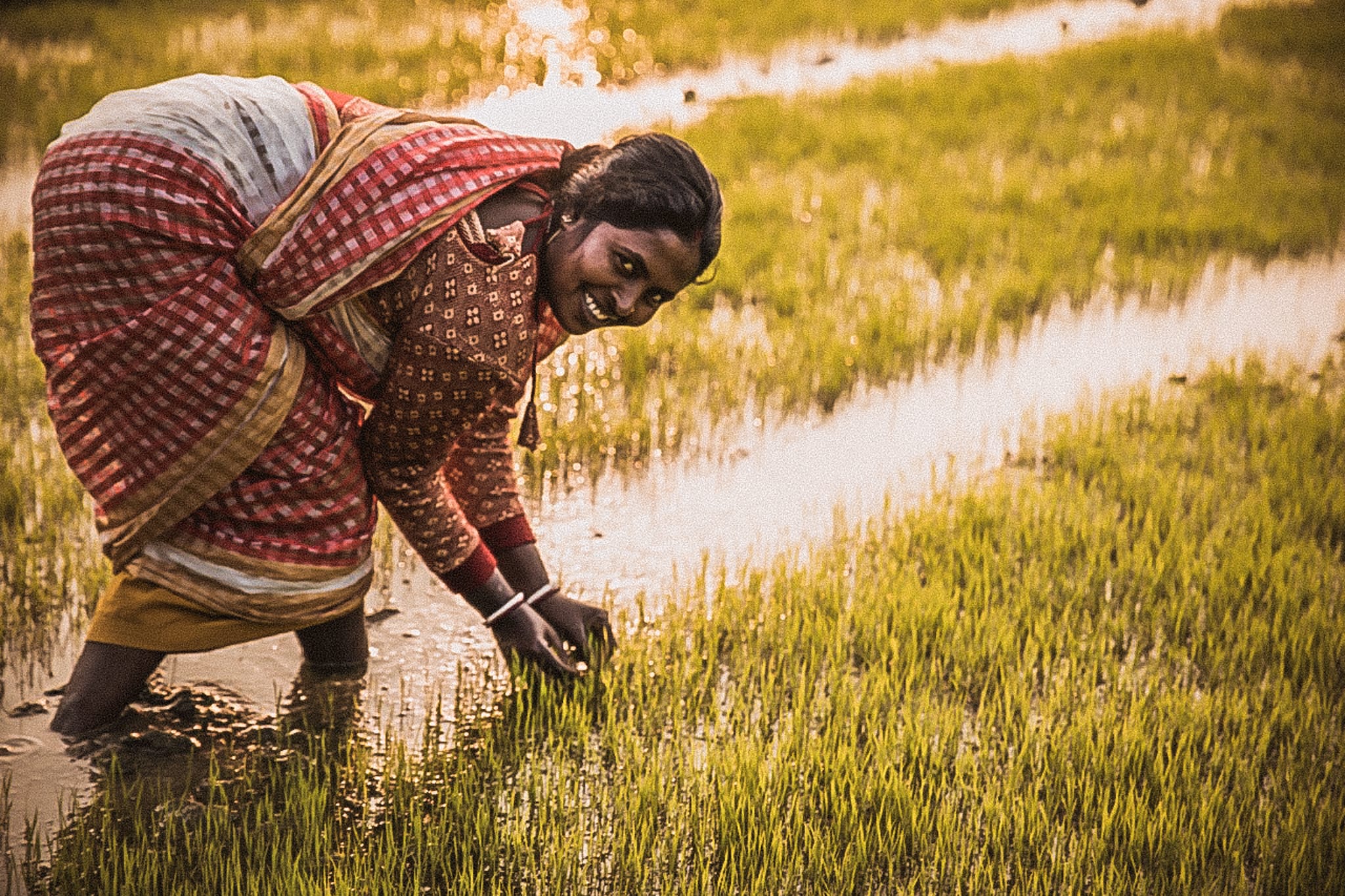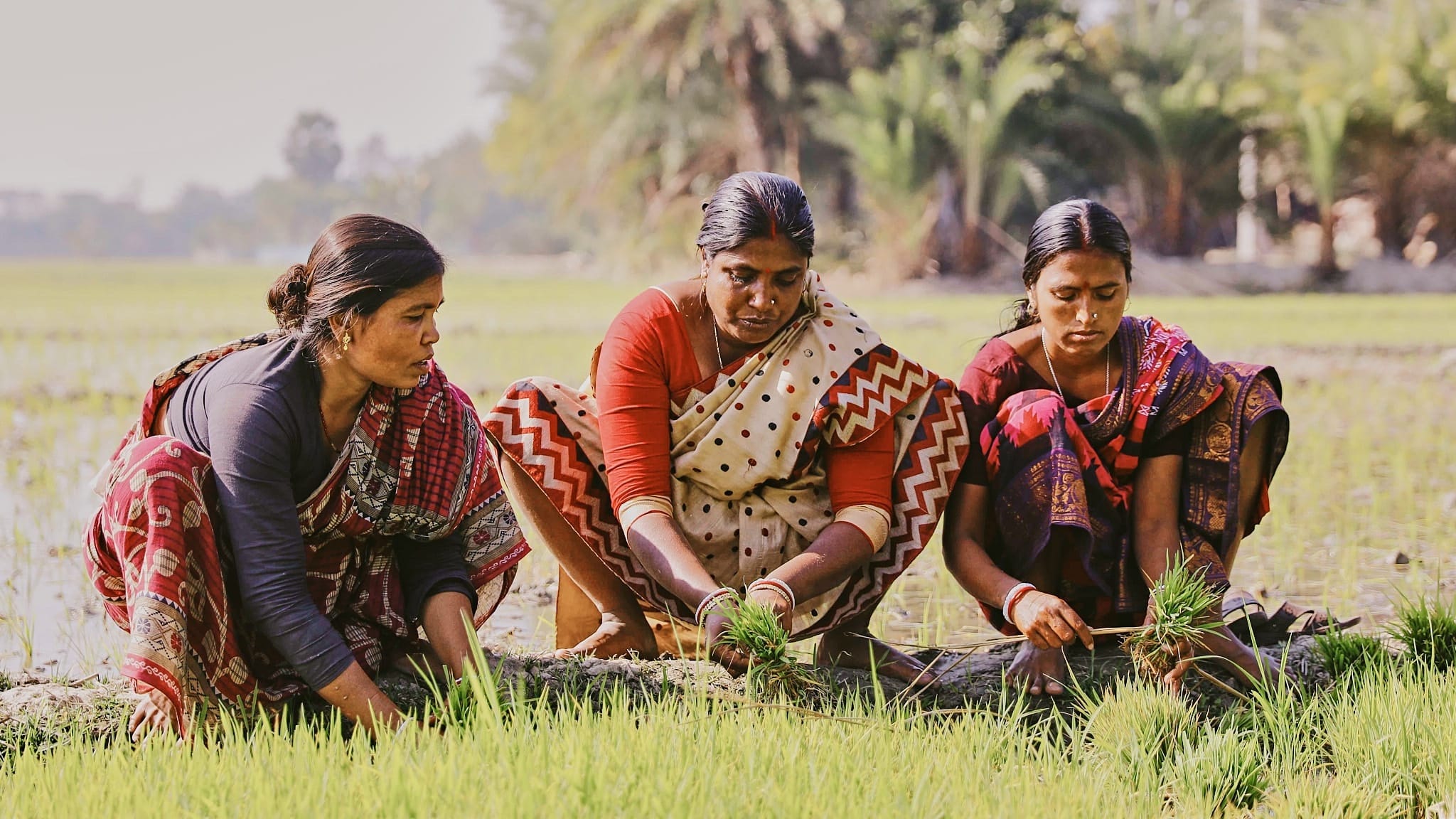Background
Despite the abundant resources and fertile land in numerous regions across the African continent, poverty and food shortages continue to affect many people. Farmers in particular face challenges such as low yields, significant crop losses, and low market prices.
Take Joseph, for instance, a farmer in Siaya County, who is currently experiencing crop losses of up to 60%. These losses can be attributed to various factors including inadequate local infrastructure, lack of training, and limited access to technology and markets.
To address these issues, MOTHERLAND steps in. The social business plays a vital role in connecting smallholder farmers with innovative African startups. Additionally, it provides education on sustainable agriculture for local children.
Holistic solutions through the creation of a start-up ecosystem
MOTHERLAND takes on the role of an “Ecosystem Orchestrator” rather than simply a solution provider. It closely collaborates with smallholder farmers to understand their specific needs. Simultaneously, the social business actively seeks out local startups that have the capacity to address the challenges faced by these farmers.
Recognizing that a single startup may not provide a complete solution, MOTHERLAND facilitates collaboration among multiple startups. By doing so, it supports these startups in exploring new opportunities while simultaneously bridging the gaps in the farmers’ value chain.
In practical terms, “eProd,” a resource planning software solution tailored specifically to the needs of rural regions in Africa, is being used to optimize harvest times, communications, payments and more. Additionally, another startup called “duhqa” utilizes this valuable information to match supply and demand, plan the optimal harvest time, and handle logistics effectively. To minimize losses, the startup “KOAN” offers on-site training on efficient harvesting and post-harvest techniques. Finally, the harvested crops are accurately weighed, documented, and traded efficiently to ensure fair prices for the farmers.
Thanks to this comprehensive approach, smallholders like Joseph are now able to sell their crops at a 20-25% higher price per kilogram and triple their sales. MOTHERLAND is currently collaborating with 260 smallholder farmers and has ambitious plans to extend the initiative to millions more throughout Africa, with the backing of the knodel foundation. The selection of participating startups will be tailored precisely to meet the specific local requirements.
Furthermore, the additional profits generated from this initiative will be allocated to a community fund. This fund supports various projects, including the “Young Earth Guardians” program, an educational initiative by MOTHERLAND that teaches children about the importance of regenerative agriculture.
Background
The main purpose of social businesses is not to maximise profits. Instead, they are fully dedicated to serving a social and/or environmental cause. However, social businesses face many challenges themselves. Especially in their early growth phase, they struggle to obtain adequate funding: Commercial banks don’t offer many opportunities as they shy away from early-stage or supposedly risky business models; microfinance companies do not present a viable alternative either due to their excessive interest rates. This is precisely where Yunus Social Business (YSB) comes in.
Sustainable Investments with Multiple Impact
YSB invests in emerging social businesses with promising concepts across areas such as safe water, waste recycling, healthcare, education, food and clean energy. Beyond finance, YSB offers the enterprises technical know-how and hands-on business support in order to facilitate sustained growth.
The knodel foundation supports YSB’s “Philanthropic Evergreen Fund” which provides long-term, low-interest loans to social enterprises across East Africa and in countries such as Brazil, Colombia and India. As these companies repay, the donations are reinvested into new social businesses, creating multiple impact over and over again. Through this model, YSB has already financed 62 social businesses and supported over 2,000 social business entrepreneurs.
One example of a successful project from YSB’s portfolio is the Instituto Muda in São Paulo, Brazil: Every day, the city generates 20,000 tons of waste. However, only 5 percent of residential buildings offer public recycling services; the vast majority of waste goes to landfills. To counteract pollution and at the same time create new income opportunities, Instituto Muda collects waste from high-income residential buildings for a fee and distributes the waste materials to recycling cooperatives across the city. This provides employment for low-income families, formerly homeless individuals and rehabilitated drug addicts at the cooperatives.
As part of its engagement, YSB has provided Instituto Muda with upfront capital for scaling-up its operations. In addition to its financial investment, YSB also introduced the social enterprise to mentors in marketing and logistics, helped build a pipeline of corporate clients and supported its strategic financial planning. Since YSB’s involvement through the “Philanthropic Evergreen Fund”, the number of apartment complexes visited by Instituto Muda has increased five-fold, and more than 800 new jobs have been created. Moreover, the social business has contributed a crucial part towards pollution prevention by reducing and eliminating waste.
By teaming up with Yunus Social Business, the knodel foundation is able to support many more like-minded initiatives, harnessing the power of business to fight poverty and address the climate crisis.
In order to reach as many people as possible efficiently, the Stay Foundation builds on already existing local structures. Initially, successful East African social entrepreneurs who have already worked with the Capable Poors will be networked. This is done by founding the “Stay Alliance”, a social entrepreneurs’ association. This currently comprises 80 social entrepreneurs and their organisations in three countries. In a second step, the Stay Alliance will standardize the best concepts for combating poverty of individual social entrepreneurs. Subsequently, all 80 social entrepreneurs can use the concepts from the pool of their Stay Alliances free of charge. Each of these concepts is also structured to be financially sustainable.
An independent external controlling system is used to evaluate all activities in terms of the efficiency and effectiveness achieved. This transnational monitoring and control process leads to maximum efficiency of the “invested” financial resources (donations + impact investing capital) through very high transparency and thus also prevents corruption.
Project
After the knodel foundation has financed the foundation and development of the Stay Alliance in Kenya since 2018, the project and organisational development of the Stay Alliances in Kenya, Rwanda and Uganda will be supported in the coming years. The focus will be on the development of the “Stay Alliance Programme”. Stay Alliance Programmes are standardised, financially sustainable concepts for poverty reduction, which can be used free of charge by all social entrepreneurs. Adapted to the local economic structures, the Stay Alliance Programmes initially concentrate on agriculture, e.g. beekeeping, organic grain cultivation, bio-gas backpacks, tree plantations, etc. The portfolio is supplemented by programmes in the areas of education and health.
Background
Due to high expenses and low yields, Indian smallholders often live on the edge of the subsistence level. While the ‘Green Revolution’ promised them better lives, it ultimately led thousands of farmers to commit suicide as they could no longer bear the costs of chemical inputs and got stuck in a debt trap.
In addition, they receive only a small share of the selling price, because they are dependent on middlemen to whom they sell their products. Smallholders also usually have a poor negotiation position, because they don’t know the final market price due to a lack of alternative distribution channels.
However, the transition to organic farming as an alternative for smallholders is not always smooth. It often means more intensive labour, which is not reflected in the selling price. That’s why amar khamar uses the digital revolution to bypass middlemen and achieve fair prices for organic produce. This enables a higher income for the farmers while helping to restore natural ecosystems.
From farm to plate
Through training sessions and the provision of local, unmodified seeds, amar khamar helps smallholder farmers in the Indian state of West Bengal to switch to organic farming methods. With its online platform and the social enterprise’s own store in Kolkata, the smallholders’ produce is sold fairly and directly to customers.
The vast majority of amar khamar’s farmers are women. The increased income of the women farmers directly benefits their family, especially the children. Since amar khamar only offers products that are grown sustainably, the farmers have an incentive to adapt nature-based farming practices, without using harmful fertilizers, herbicides and pesticides. Due to the resilience of indigenous seeds, only non-genetically modified seeds are being cultivated. For this, the women farmers are not only paid fair wages but also participate in a transparent pricing process.
Amar khamar offers a large variety of indigenous rice types as well as spices, lentils, honey and other products. Since the level of awareness about the advantages of indigenous species has reduced in the city, amar khamar also promotes sustainable consumption. In addition, food pop-ups organized in cooperation with food bloggers provide customers with inspiration for creative and modern recipes based on traditional rice varieties.
The knodel foundation’s support enables amar khamar’s organizational development from a start-up to a viable social business and helps turn more women smallholder farmers into local changemakers for sustainable agriculture.
